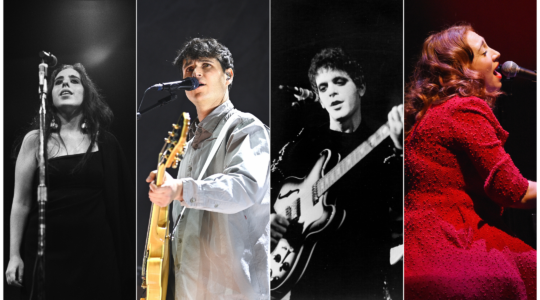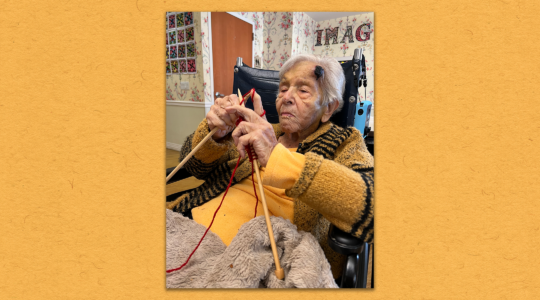Bassem Eid is a human rights advocate who founded the Palestinian Human Rights Monitoring Organization. Born in 1958 in Jordanian-ruled east Jerusalem, he spent the first 33 years of his life in the Shuafat refugee camp. Since 2003 he has been a political analyst for Israel TV and since 2009 a commentator on Palestinian politics. He lives in east Jerusalem and is in the U.S. as part of a speaking tour by Christians, Muslims and Bedouins from Israel and the West Bank to combat anti-Semitism on college campuses and elsewhere. He was interviewed following a speech at the Huntington (L.I.) Jewish Center.
Q: President Trump is expected to invite Israeli Prime Minister Benjamin Netanyahu and Palestinian President Mahmoud Abbas to Washington in a bid to resolve the Israeli-Palestinian conflict. Do you believe he will succeed?
A: No, for sure not, because we have a long history with prior U.S. presidents. We remember the many conferences and meetings, and unfortunately it was much more for the media than to benefit Israelis or Palestinians. The problem is not meeting each other — it is how both sides can have the good will to bridge the gap of hatred. In the previous meetings, I didn’t see where any bridges of confidence were built.
Hamas and Abbas’ Fatah Party signed a reconciliation agreement last month that could possibly lead to a unity government. What are the prospects?
I think the Palestinians still feel suspicious of any kind of united government. This is agreement No. 6 that they have signed, and until today there have been no changes on the ground in the Gaza Strip, and there is no immediate expectation of change.
Are Israeli and Palestinian people even ready to accept an agreement should one be signed?
Nobody knows yet what is really behind this agreement. I think Hamas’ major problem is that after the 2014 war [with Israel] Hamas became unable to manage the Gaza Strip because of the lack of funding. It looks like the Hamas leadership is rethinking why it should have to raise funds and spend it on the 2 million people in the Gaza Strip. Why not hand all of these civil issues to the Palestinian Authority and then focus on making its own military stronger?
Hamas and Fatah have a different agenda. Hamas’ agenda is to strengthen itself in order to destroy Israel. The agenda of Fatah is how to keep the status quo so it can get more money [from the international community] while it keeps our own people hostage under the Palestinian-Israeli conflict.
What has to be done to prepare the Palestinian people for peace?
The textbooks the Palestinians use must be changed as soon as possible because if we do not start a peace education now, I don’t believe we Palestinians will be able to achieve peace in the coming one or two generations. Now, unfortunately, Hamas and UNRWA — the United Nations Relief and Works Agency — are working together in the Gaza Strip mainly to incite and create more hatred towards Israel. UNRWA has almost become part of the conflict rather than part of the resolution.
Sixty-five percent of UNRWA’s yearly budget goes to salaries, rent for its offices, cars, office furniture and fuel. Palestinian refugees survive on 35 percent of UNRWA’s yearly budget. This is the reason why its services have become more and more limited.
Israel has been fighting the BDS (boycott, divestment and sanctions) movement that seeks to undermine the country. Does the Palestinian public support it?
I believe the majority of civilian Palestinians in the Gaza Strip and the West Bank do not support it. The proof is that we have 150,000 Palestinian workers inside Israel and another 15,000 working inside the settlements in the West Bank. They believe BDS is working mainly against the Palestinians. When Soda Stream moved its factory from the West Bank to Israel [because of the BDS campaign], 1,500 Palestinians lost their jobs and the profit of Soda Stream tripled, so who is the real loser here?
It is said that a peace agreement would involve the establishment of a Palestinian state. Is that a priority for Palestinians?
Where is the other [Palestinian] state? A state that has no constitution or economy or infrastructure and where 54 percent of its population are living in refugee camps is not a state. A state has to be built before it is recognized.
How have you been greeted in your tour of college campuses?
I have been received very well, although sometimes with some disturbances, small demonstrations or the circulation of leaflets against me. In general, though, most of the students want to learn about the conflict rather to be a propagandists.
How are your views greeted by other Palestinians
I have huge support among Palestinian civilians.
The New York Jewish Week brings you the stories behind the headlines, keeping you connected to Jewish life in New York. Help sustain the reporting you trust by donating today.




